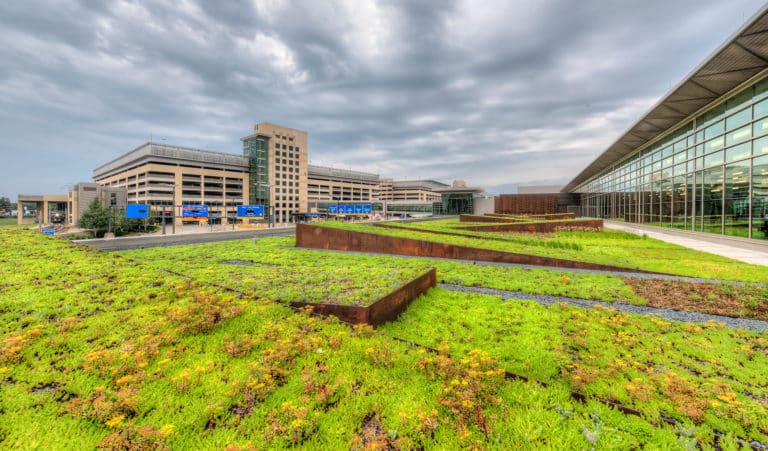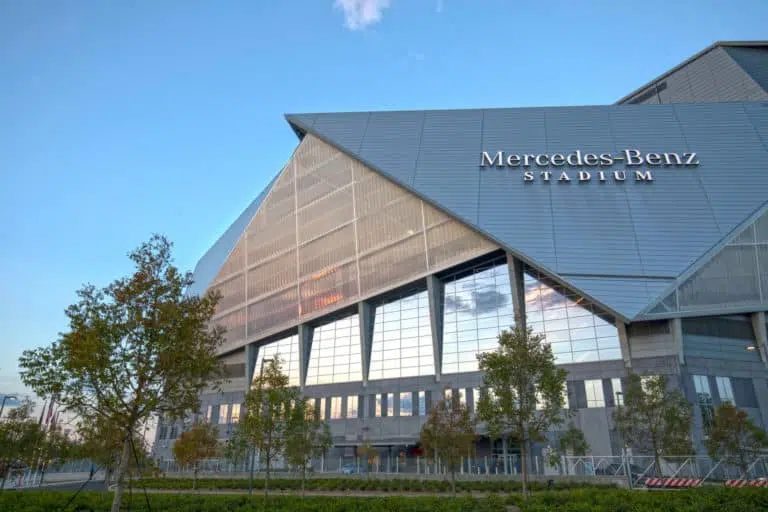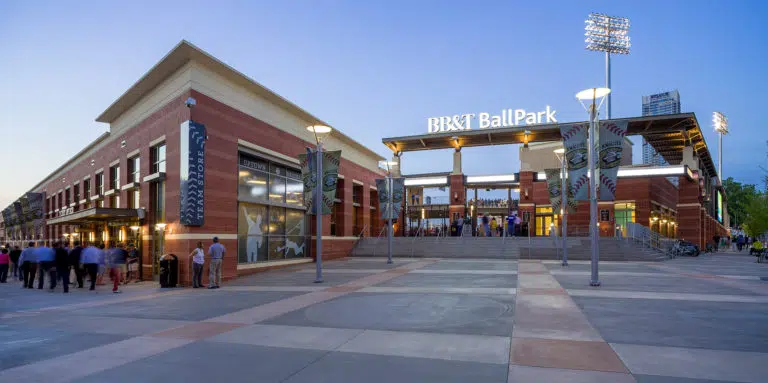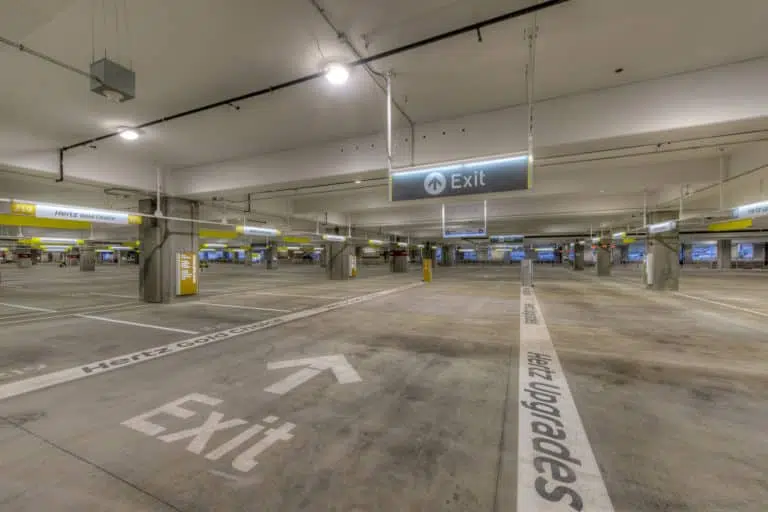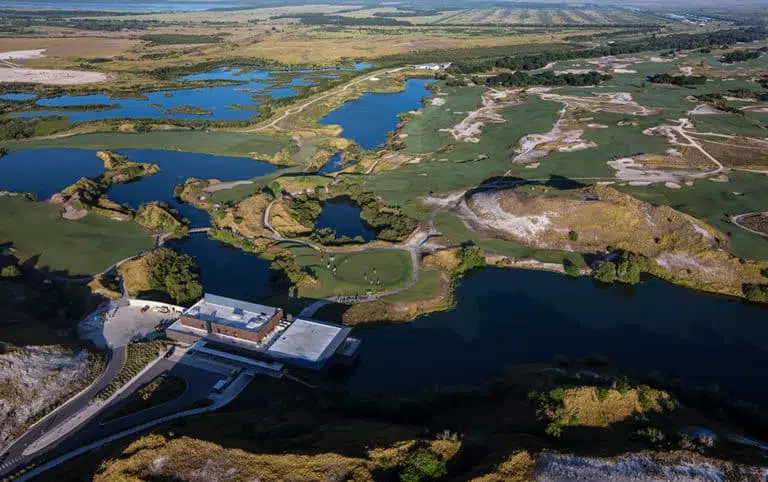Sustainability Consulting & Design
Kimley-Horn is supporting an unprecedented transition in energy, land, water, transportation, and other infrastructure that will lead our communities into a more sustainable future.
We help clients put plans into action to meet market demands, comply with emerging regulations, adopt sustainable practices, and leverage private or public funding. Our engineers and planners can identify tangible strategies to set new targets and fulfill sustainability commitments. Whether your project must stay below a stated carbon footprint, achieve net zero or carbon neutrality, reduce its water consumption, or protect natural resources, Kimley-Horn can help you plan and execute your sustainability goals.
Greenhouse Gas Mitigation and Decarbonization Strategies
Communities, agencies, corporations, and developers are increasingly prioritizing the decarbonization of their operations and projects. The emergence of new regulations, innovative technologies, and sustainability investment trends are a few factors driving decarbonization movements. Understanding greenhouse gas (GHG) mitigation strategies can be confusing, but simply put, we have helped our clients in the following ways:
- Measure emissions (Scope 1, 2, and 3) and establish baselines
- Raise the standard of performance for buildings, sites, and infrastructure
- Understand, anticipate, and comply with policy and code changes
- Develop operational and embodied carbon reduction strategies
- Create implementation strategies to reach net zero or carbon neutrality
We are familiar with client needs during planning and project life cycles. From sorting through environmental product declarations (EPDs) to performing life cycle assessments (LCAs), our sustainability consultants and subject matter experts are available to provide creative solutions to meet stakeholder needs.
Alternative Energy and Power Solutions
Reducing a system’s reliance on a single source of power can be a challenge. However, the urgency to diversify energy options continues to drive significant investment in an array of renewable and regenerative energy sources. At Kimley-Horn, we are well-versed in a wide range of services to keep up with disruptions, opportunities, and emerging trends in the energy sector, including:
- Solar
- Wind
- Bioenergy
- Geothermal
- Microgrids and battery energy storage systems (BESS)
- Electric vehicle charging infrastructure
- Energy audits and efficiency plans
- Energy policy evolution
We design energy solutions of various scales, from single-building heat pump replacements to solar farms capable of producing more than 300 megawatts of power per day. Regardless of the complexity or constraints of a given project, Kimley-Horn can help determine the right strategy to maximize return on investment and provide pragmatic solutions for a cleaner tomorrow.
Natural Capital and Ecosystems Services
Natural assets—or natural capital—include wetlands, rivers, oceans, plants, soil, and animals. Communities, developers, and corporations are recognizing that environmental systems play a fundamental role in providing vital services and absorbing emissions. We work with our clients to plan, design, and implement projects considering natural assets and the services they provide. Our multi-disciplinary team of scientists, engineers, planners, and landscape architects are helping our clients:
- Protect and incorporate natural assets to meet regulatory requirements or corporate commitments.
- Use nature-based solutions (green infrastructure) to provide benefits, including regulating flooding, absorbing carbon, improving air and water quality, and providing recreation and aesthetic benefits.
- Conserve and restore ecosystems to increase ecological functions of natural assets and species biodiversification.
- Create sustainable landscapes to reduce irrigation and heat, absorb carbon, and restore urban tree canopy.
- Craft pollinator habitats.
It is critical to focus on site planning and design to not only mitigate the effects of GHG emission but to also protect, and when feasible, regenerate nature. Kimley-Horn offers the expertise of accomplished professionals adept in a variety of sustainable development and infrastructure projects.
Climate Adaptation and Resiliency
Natural disasters and climate-driven catastrophes threaten our critical infrastructure and communities. Applying the concepts of resiliency planning and design can help businesses and communities adapt to the shocks and stressors of a changing world. Identifying actionable investments requires data-driven planning frameworks that are:
- Adaptive
- Probabilistic
- Phased
- Locally informed
- Holistic
- Sustainable
Kimley-Horn regularly helps clients align resilience, sustainability, and public health needs with cost-effective, long-term solutions. Our portfolio of work spans municipal planning, identification of funding, project design, and program management. We have produced GHG reduction strategies, disaster and hazard mitigation plans, written climate action and adaptation plans, and completed vulnerability and risk assessments for clients from coast to coast. We are proud to be at the forefront of helping clients adapt to be more resilient.
One Water Solutions and Water Positivity
Improving the reliability of our water supply requires cooperation and coordination between a variety of public and private entities. Climate stressors, natural disasters, and human activity threaten the continued stability of water resources in many communities, driving the emergence of new government regulations, contaminant studies, technological advancements, and more.
Kimley-Horn takes an integrated One Water and Water Positive approach to sustainable water management and implementation solutions. We recognize the value of all water and work with clients to optimize its value through various treatment, conservation, and beneficial-reuse approaches to bolster water availability. These sustainable water strategies include:
- Regenerative stormwater reuse
- Rainwater harvesting
- Greywater reuse
- Irrigation audits
- Natural-based solutions for stormwater and wastewater management
- Potable reuse at varying scales
- Treatment for forever chemicals and other contaminants
- Natural systems treatment
Our systems approach balances a project’s long-term operations, maintenance requirements, and construction costs to prolong the life cycle of water resources.
Circular Economy Practices for Sustainable Infrastructure and Development
The circular economic model focuses on reuse, recycling, and refurbishing with the goal of extending an asset’s life cycle. It focuses on ways to upcycle demolition materials, design waste out, improve efficiency, regenerate nature, and design materials to be cradle-to-cradle while providing an opportunity for low-carbon designs. Kimley-Horn is supporting clients as they convert their infrastructure, developments, and operations to a circular model by layering into other sustainable strategies like GHG mitigation, natural resource protection, and One Water. Some of our services supporting this transition include:
- Pavement and asset management
- Material choice consulting, including low-carbon concrete, steel, and timber structural materials
- Construction materials, redevelopment, and building upcycling
- Recycling
- Waste to energy systems
- Composting
- Flexible site design for market changes (e.g., office, residential, or retail)
- Decommissioning plans for renewables, including solar
To mitigate the carbon impact of materials in hard-to-abate sectors like concrete, steel, plastic, and aluminum, a circular economic model provides options to consider. We are here to support your transition and help you weigh the best solutions for your unique projects and systems.
Community Engagement
Sustainability is most simply defined as intergenerational wellbeing with people at the center. Community Engagement is fundamental to sustainable solutions and infrastructure—which should improve a community’s social, economic, and ecological outcomes equally throughout the community. Our team of community planning professionals can support your sustainable projects through:
- Community planning and engagement
- Informed decision making
- Access to opportunity (travel time) studies
- Mobility planning
- Cultural resource and tribal coordination
- ADA planning and improvements
- GIS mapping of climate stress and risks relative to demographics
We have partnered with clients across the country to craft people-centered approaches that fairly balance and distribute the benefits and burdens of projects.
Reporting and Commissioning
Sustainability reporting and commissioning are communication tools that help document information between an organization and its internal and external stakeholders. It can be a tool for regulatory compliance, provide verification of performance, and document added values. We are supporting clients in a wide variety of reporting and commissioning endeavors for operations, new and old buildings, sites, and infrastructure. Our reporting and commissioning services include:
- Scope 1, 2, and 3 GHG emissions calculations
- USGBC LEED certification
- Sustainable Sites Initiative (SITES) certification
- Institute for Sustainable Infrastructure (ISI) Envision
- WELL building certification
- Fitwel certification
- Energy Star
We are here to guide you as you look to meet climate disclosure standards, reduce emissions, or progress in your corporate or community sustainability commitments.

